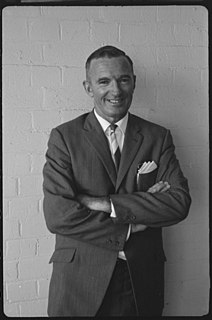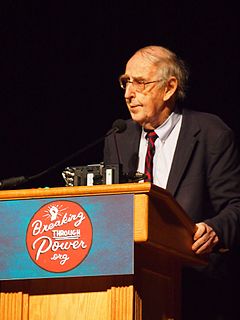A Quote by Denis Diderot
Pithy sentences are like sharp nails which force truth upon our memory.
Related Quotes
Memory is a dead thing. Memory is not truth and cannot ever be, because truth is always alive, truth is life; memory is persistence of that which is no more. It is living in ghost world, but it contains us, it is our prison. In fact it is us. Memory creates the knot, the complex called the I and the ego
The truth is impossible to comprehend even when one is willing to tell it. For the truth resides in memory and memory is clouded with repression and a desire to embellish. The recollections of any individual are conditioned by the general truths to which he or she has tried to live. To recall an event is to interpret it, so the truth is altered by the very act of remembering. Therefore the truth, like God, does not exist - only the search for it.
To say that truth is not out there is simply to say that where there are no sentences there is no truth, that sentences are elements of human languages, and that languages are human creations.~ The suggestion that truth~ is out there is a legacy of an age in which the world was seen as the creation of a being who had a language his own.
Like for 'Black Nails,' I just had black nails - and I never have black nails. It was my first and last time getting black nails. And that's so not normal for me. So when you're recording, you're up at the mic and you gotta name the file, so I just look down and I'm like, 'Black Nails!' That's literally what it was.
The students I've been with these twenty years are looking for a world where it becomes a little easier to love and a lot harder to hate, where learning nonviolence means that we dedicate our hearts, minds, time, and money to a commitment that the force of love, the force of truth, the force of justice, and the force of organized resistance to corrupt power are seen as sane and the force of fists, guns, armies, and bombs insane.
The words are strung together, with their own special grammar-the laws of quantum theory-to form sentences, which are molecules. Soon we have books, entire libraries, made out of molecular "sentences." The universe is like a library in which the words are atoms. Just look at what has been written with these hundred words! Our own bodies are books in that library, specified by the organization of molecules-but the universe and literature are organizations of identical, interchangeable objects; they are information systems.




































